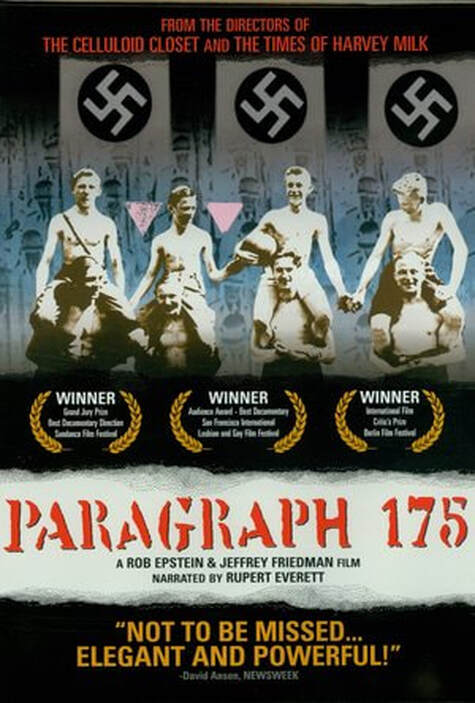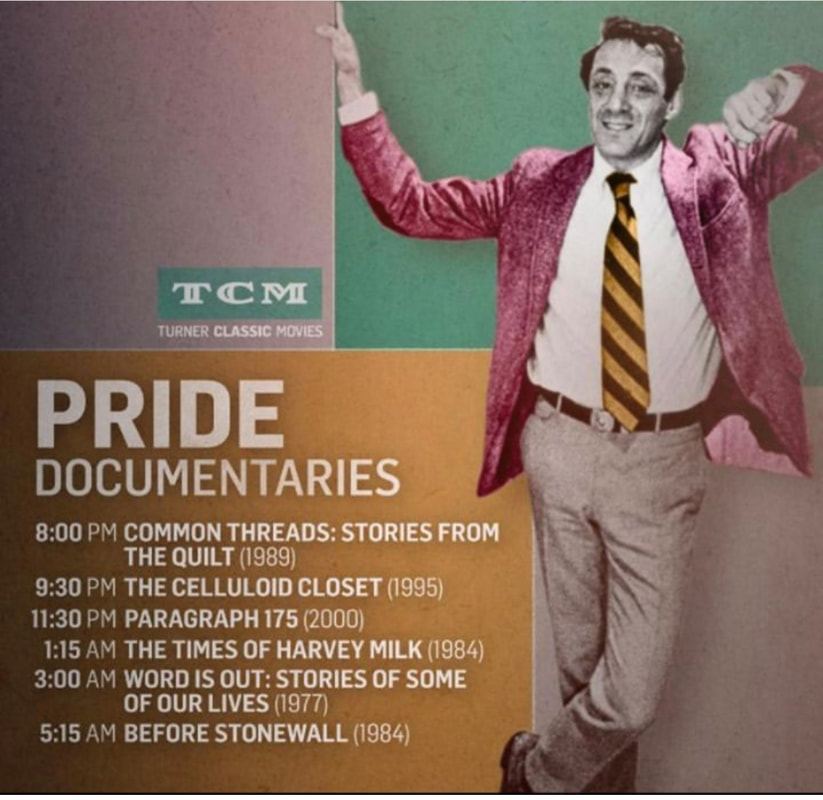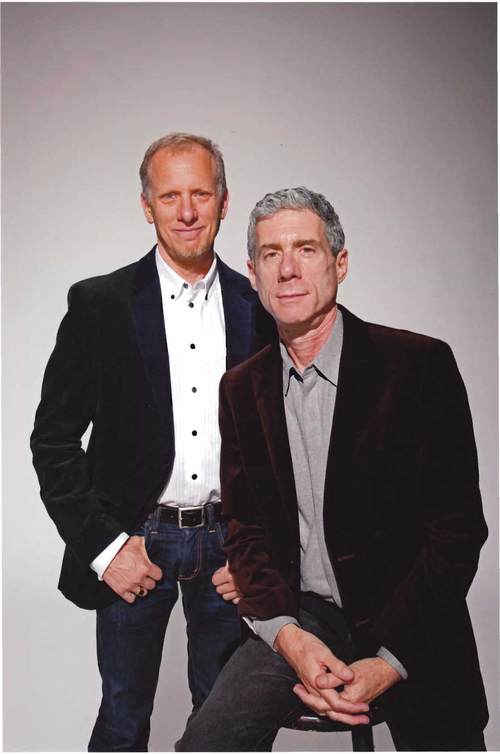Your source for Arts & Entertainment content, as well as fabulous human-interest stories, from Baltimore and beyond!
|
By Frankie Kujawa Turner Classic Movies (TCM) celebrates June Pride Month with a special evening of LGBTQ-centric programming beginning at 8PM on Monday, June 28th. Featuring the documentaries of Jeffrey Friedman and Rob Epstein, viewers will enjoy films such as the Oscar-winning “The Times of Harvey Milk” (1984) and the TCM premiere of “Common Threads: Stories from the Quilt” (1989). Friedman and Epstein recently chatted about the upcoming night of programming, their passion for storytelling and the importance of younger generations taking the time to view these crucial films. Frankie Kujawa: What are you hoping that viewers take away from this night of programming at Turner Classic Movies (TCM)? Jeff Friedman: I hope people will have a sense of our LGBTQ+ history. That [our community] has a rich, vibrant, and dramatic history. Especially for young people who haven’t experienced it and may or may not have much knowledge of what we’ve been through. It would be lovely if their imaginations were inspired, and they gained more clear understanding of where we came from and how we got to where we are now. Rob Epstein: Personally, I hope audiences are entertained by the films. I hope they come away with a richer and deeper sense of the craft of documentary because you will be seeing several examples of our documentary work. So, I hope they also come to appreciate the filmmaking involved in making these films. Frankie Kujawa: Your film “The Celluloid Closet” (1995) explored the history of LGBTQ in cinema. Would you ever consider doing a follow up documentary from 1995 to current times? Rob Epstein: Yes, but I think Jeffrey and I feel like we’re not the filmmakers to do that. It would be good for filmmakers to come in with fresh eyes. That’s because “The Celluloid Closet” really had a particular thesis about Hollywood before ‘the change’ when we [in the LGBTQ community] weren’t out. When we [as a community] were not yet creating our own images and our own stories. But we are in conversation with filmmakers to help make that possibly happen where we would be executively producing. Jeff Friedman: You know, the closer you are to the present the harder it is to have perspective. So, looking at the first 100 years of cinema we had a finite universe of images to work with. Though it was very expansive, it was still finite. It’s much harder to really understand and have perspective on what’s happening around us at the moment.  "Paragraph 175" (2000) chronicles the lives of several gay men and one lesbian who were persecuted by the Nazis under Paragraph 175 - the sodomy provision of the German penal code, dating back to 1871. It's believed that between 1933 and 1945, 100,000 men were arrested under Paragraph 175. Some were imprisoned, others were sent to concentration camps. Only about 4,000 survived. Frankie Kujawa: Why is it important for younger generations of viewers who haven’t experienced your documentaries to see them?
Jeff Friedman: Our memories are so short, and our knowledge of history is very limited. I think that queer history is something that I’m not sure how much people know. The films were made, or at least some of these films were made, about a history that was unfolding around us in real time. Now it’s part of our collective history. I’m just not sure what young people really know about what we’ve been through as a community and how we got here. Rob Epstein: Also, that it wasn’t that long ago that nobody was out of the closet. In the ‘50s and ‘60s, those closets were nailed shut. And it really wasn’t until our generation, in the ‘70s, that people started coming out publicly. That was really the foundation and kicked off everything that’s happened from then until now. So, it’s relatively recent history that, for younger people, may feel like ancient history. But the fact that we [who experienced it] are still here shows that it wasn’t that long ago. So, I think as Jeffrey said, it’s important to know our collective history just to have a context for the world in which we live now and where we hope to be going. Frankie Kujawa: What drives your individual passions for storytelling? Rob Epstein: For me, it’s very personal. I think that most of our LGBTQ work comes from a place from having lived the experience, wanting to know the experience or wanting to know the history that preceded our experience. That was the case with [the documentary film] “Paragraph 175” (2000). So, I think those are the films that mean the most to us and have had proven to have the most lasting value because it’s coming from some place very deeply personal and felt. That said, we’re documentarians, so we also have to have an objective eye as well as a subjective one. That’s part of the balance of being a filmmaker. Jeff Friedman: For me, I like stories and I like watching movies. The movies that we have made have been responsive to the world we live in. We had a feeling that the stories around us needed to be preserved, interpreted, and passed on. Frankie Kujawa: Are there any specific stories that you have experienced that you haven’t shared yet but would like to sometime in the future? Rob Epstein: Well, a theme that we’ve been grappling with and trying to figure out in what form we may explore is this ‘lost generation.’ The generation of men, our generation of men, who were lost to the AIDS epidemic in its most consequential years. That is because it’s a void. Most younger people have no sense of what that void is. Therefore, the challenge is how do you bring to life a void. How do you bring to life something that no longer exists that has had such a profound effect and such a lasting legacy on the lives we’re all living now? Especially because it was that generation that really started the LGBTQ movement and Act Up and made contributions to the arts that are beyond our imagination. That’s a story that we would like to figure out a way to tell in one form.
0 Comments
Your comment will be posted after it is approved.
Leave a Reply. |
Archives
January 2024
Categories
All
|

